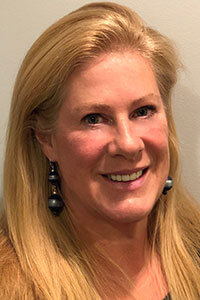
Independent meeting professionals have had to reimagine their roles to keep their businesses thriving in the face of commission cuts.
Marriott announced in January 2018 that it would reduce group booking commissions for intermediaries from 10 percent to 7 percent, effective March 31, 2018 — a move that was soon followed by Hilton, and then Hyatt. Many independent planners watched their revenues suddenly drop by a third. While it may have caused some independent professionals to close up shop, it hasn’t destroyed the third-party model. Almost two years after the cut, third-party meeting professionals remain a vital part of the business events industry. And the handful of planners Convene spoke to have met the challenge with new resolve, creativity, and resourcefulness.

Alex Doyle
“There is clearly a role and a need for independent planners now and into the future,” said Alex Doyle, CMP, vice president, meetings and events, at Aurora, Colorado–based 21st Century Group. “Business is always evolving and we are in the middle of an evolvement today.”
Here’s a look at some of the strategies that independents have employed to reimagine their roles and keep their businesses thriving.
Adding New Services
When large hotel chains began paying lower commissions, “they forced us to become experts in other areas,” said Jeff Berger, chief thinking officer at Conference Planning Resources Ltd., in Naperville, Illinois.
For instance, Conference Planning Resources now specializes in providing audiovisual services and Wi-Fi for meetings and events. The company contracts directly with several AV providers and is almost always able to meet clients’ AV needs at a fraction of the price they would pay the hotel to handle the same services, Berger said.
One hotel, for example, told Berger’s association client it would charge about $70,000 to provide Wi-Fi for 700 people for three days. Berger’s outside vendor provided the same service for $20,000, including his commission and taxes.
“So the hotels are no longer paying us 3 percent of the commissions they once did, but they’re also not getting the revenue from providing AV, because we’re doing it for our clients at lower rates,” Berger said.
In addition to Wi-Fi and AV, independent planners also are earning commissions from outside providers for transportation, F&B, and other services, said MaryBeth Powers, CMP, president of Planning Powers LLC, in Alexandria, Virginia.

MaryBeth Powers
Banding Together
As a result of hotels’ action to lower commissions, a group of independent meeting execs launched the Alliance of Independent Meeting Professionals (AIMP). Through this new membership organization, independent planners work together to tackle issues such as commission structure and other challenges.
“The goal of the Alliance is to continue to advocate for the independent planner and to invite suppliers to network with planners who foster valuable partnerships,” Powers said.
Firms like 21st Century Group, which has become active within AIMP, say the organization is a great resource for new ideas and strategies. “We believe that through alliances such as AIMP, we can address this reduced commission issue along with any new threats that might be coming down the road,” Doyle said. “There is strength in numbers and by banding together and by showing our hotel partners how much business we as a group represent, we should be able to strengthen our position in terms of negotiating favorable terms and contracted commission levels moving forward.”
While the large hotel companies haven’t made a move to change their new policy or revert to the former structure, some non-corporate-owned properties under their flags continue to pay 10 percent, Berger said. But those who have watched the cyclical nature of the events business over the years know that times could change, he added. “I’ve been through four recessions in this business. When the economy turns for the worse, we’ll see how long the hotels hold out on the commission cut.”

Jeff Berger
Building New Partnerships
Not only are independent planners building stronger relationships with each other, but many also are working to create stronger partnerships with smaller independent and boutique properties to reduce their dependence on the large hotel corporations.
“The good news is that there are still many other chains and independent properties that have not cut commissions, so that’s helpful,” Doyle said. “And we see a fair amount of our business migrating to those hotel options.”
Independent planners continue to bring business to Marriott, Hilton, Hyatt, and other chains that now pay lower commissions. But when some clients are informed about the difference in their options, they opt for the property that will better compensate their independent consultant, Berger said. Meeting organizers that have long relied on independent planners have decided to take their events to Omni, Four Seasons, and other hotels that continue to pay a 10-percent commission, he said.
Berger has had some clients tell hotels they are losing the client’s business because they are refusing to pay his traditional 10-percent commission. “Many of our clients have told hotels, ‘Don’t underestimate my relationship with my third-party planning firm that has worked with me for years,’” he said. “They’ve asked the hotels, ‘Do you really want to lose this $1-million piece of business over $30,000 in commissions?’”
In addition to forging stronger relationships with smaller and independent hotels, third-party planners also are working more closely with convention and visitor bureaus, and sometimes earning commissions from them. For instance, 14 bureaus are members of the AIMP, and a number of them offer special incentives to independent meeting planner members who bring events to their destinations. The Greater Birmingham Convention & Visitors Bureau, for instance, has been offering a 3-percent commission to independents who book events there through a campaign called “Free the Three %.”
Rethinking Traditional Approaches
Some independent planners say they haven’t been affected by the change in commissions because they use a unique pricing model. For instance, one planner charges clients an hourly or day rate for services. In many cases, those services do not include hotel sourcing.
Those whose revenue was based solely on hotel commissions have had to rethink their business model. “For the hotel site-selection side of the business, it is difficult to reinvent the wheel,” Doyle said. “It is really difficult to reduce our costs, so we see one viable strategy is to increase business levels. This is not a situation where you can save your way to prosperity, but more of a chance to be creative and increase the top-line revenues.”
21st Century Group is aiming to increase those revenues by adding new salespeople. Other independents are looking for other ways to maximize their earning potential, such as reducing the number of hours spent on hotel negotiations. For instance, when Powers bids on a proposal that includes hotel commissions, she is considering adding a cap on the number of hours her firm will spend on hotel negotiations when the commission is 7 percent.
Communicating Value
Hotel commissions traditionally have represented a large chunk of independent planners’ revenue, but that revenue wasn’t earned by simply selecting and reserving a block of rooms, Berger said. And some independent planners are using the commission cuts as an opportunity to articulate the real value they bring to hotel agreements: their negotiating prowess.
“It’s not just about saving clients money,” Berger says. “It’s also about getting the right language in contracts to achieve appropriate liability. Sometimes, one strategic clause we can get negotiated into a contract can end up saving a client hundreds of thousands of dollars.”
In addition to skill with contract negotiations, independent planners provide customized services based on each organization’s needs, Powers said. “We can provide specific services or a wide range of services, and we work with a variety of vendors, offering our clients a range of services to fit their requirements and budgets,” she said.
Despite the changing model for third-party planners, Powers is “seeing more and more organizations outsourcing their meetings to independent planners. I, along with many of my colleagues, am busier than ever,” she said. “It is my hope that independent planners will be recognized as valuable partners and compensated as such.”
